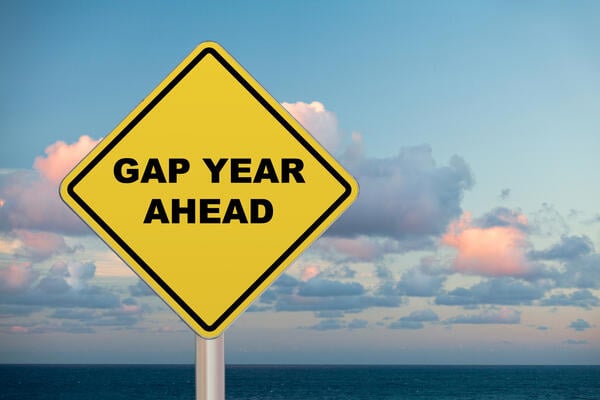
Normalize the Gap Year (opinion)
We’re two admissions leaders working to reframe how families and institutions think about the gap year. I’m Carol, a former college admissions dean with more than 20 years in higher education, and I’m also a therapist who works with teens. My co-author, Becky Mulholland, is director of first-year admission and operations at the University of Rhode Island. Together, we’re building a new kind of gap year model, one that centers on intention, purpose and career readiness for all.
The gap year concept is overdue for a cultural reset. Most popular options on the market focus on travel, outdoor adventure or service learning, but they rarely emphasize self-exploration in conjunction with career readiness or curiosity about the future of work. The term itself is widely misunderstood and sometimes dismissed. Despite its reputation as a luxury for the privileged, it’s often the families juggling cost, stress and uncertainty who stand to gain the most from a well-supported pause.
For many families, college is the most expensive decision they’ll ever make. Taking time to pause, reflect and plan shouldn’t be seen as risky—it should be seen as wise. At 17 or 18, it’s a lot to ask a young person to know what they want to do with the rest of their life. A 2017 federal data report found that about 30 percent of undergrads who had declared majors changed their major at least once, and about 10 percent changed majors more than once. These shifts often lead to extra courses and sometimes an extra semester or even a year. That’s a lot of wasted money for families who could have benefited from a more intentional pause.
And yet for many parents, the phrase “gap year” still stirs anxiety. They imagine their child lying on a couch for three months, doing nothing, or worse, never learning anything useful and losing all momentum to return to school. The idea feels foreign, risky and hard to explain. They don’t know what to tell their friends or extended family. We push back on that fear and work to normalize the idea of intentional, structured time off. It’s not just for the elite—it needs to be reclaimed as a culturally acceptable norm. That’s why we champion paid, structured earn-while-you-learn pathways such as youth apprenticeships, paid internships, stipend-backed fellowships and employer-sponsored projects that keep income stable while skills grow.
We personally promote the value of intentional pauses when talking with families and prospective students about college, helping them reframe what a year of growth and clarity can mean. We also strongly support programs with built-in pause requirements before graduate school. I’ve read thousands of applications as a dean and witnessed how powerful that year can be when it’s well guided.
Gap years, when framed and supported correctly, can foster self-discovery, emotional growth and direction. But the gap year industry itself also needs to evolve. The industry should move toward models that prioritize intentional career exploration, rooted not only in personal growth and self-awareness but in helping students find a sense of fulfillment in their future careers and lives. If colleges acknowledged the value of these experiences more visibly in their advising models and admissions narratives, they could relieve pressure on families and students and potentially reduce dropout rates and improve long-term outcomes.
We believe it’s time for higher education to actively support and normalize the gap year, not as an elite detour, but as a practical and often necessary path to college and career success. It’s time to give students and their families permission to pause.

Source link



